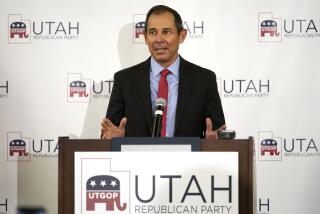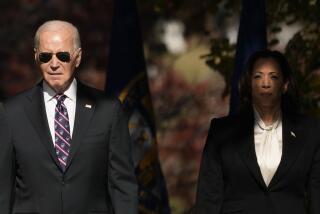How climate change transformed Germany’s Greens into the country’s most popular political party
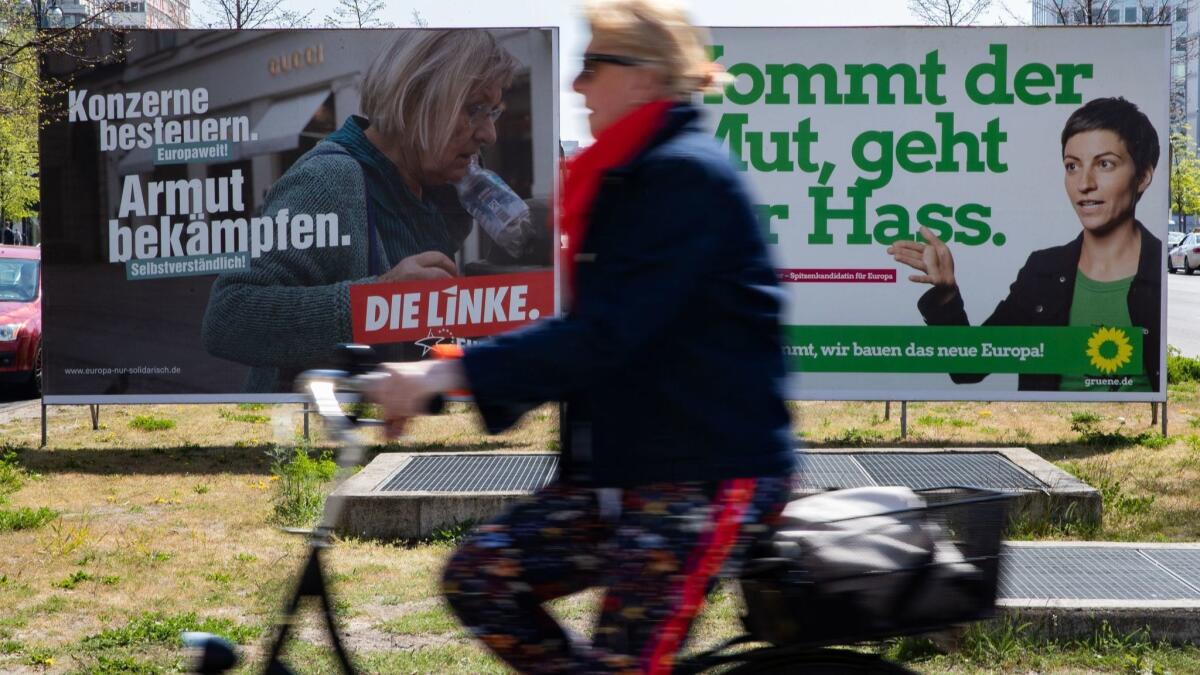
Lars Billert has been voting for Germany’s Greens party for 20 years as it slowly shed its image as a marginal party of environmental rabble-rousers. Now the Greens are suddenly ascendant — and Billert isn’t quite sure what to think.
“The Greens are riding high on the wave of climate change fears, but they’re riding it brilliantly,” said the friendly Berliner, a 53-year-old documentary film editor. “But I haven’t yet made up my mind whether it’s a good thing that the next chancellor could be from the Greens. It’s always been a smaller coalition partner that had a positive influence. I’m not sure they’re ready to lead Germany.”
That may be a minority view among Greens supporters, who have pushed the party to the forefront of German politics.
With support for the two major political parties that dominated postwar Germany melting away, the Greens party has emerged as the country’s most popular party, according to three major polls published in the last two weeks.
Its astonishing rise to the top in Europe’s largest economy is causing political tremors in Germany and throughout the European Union, indirectly leading to the resignation this month of the leader of the Social Democrats — the minority partner in Chancellor Angela Merkel’s government — and raising the possibility that the coalition government will collapse long before the next scheduled elections in 2021.
Germany’s Angela Merkel, ‘the president of Europe,’ says she won’t seek reelection as chancellor »
The Greens had already shocked the nation on May 26 when it became the second-largest party in Germany in the European Union parliamentary elections, with 20.5% of the vote, behind Merkel’s center-right Christian Democrats but well ahead of the center-left Social Democrats. Green parties now have 70 seats in the 705-seat European Parliament, up from 51.
Green parties did unexpectedly well in other European countries as well, including Finland, France, Ireland and Luxembourg, because of spreading concerns about the climate crisis and strong resistance to anti-European Union populist movements.
Since then, support for the Greens in Germany has risen to 27%, compared with 24% for Merkel’s party, according to a Forsa Institute poll released Saturday. Two similar leading polls in the last week also said the Greens have more support than Christian Democrats for the first time.
In the wake of the Greens’ improbable rise to the top of the opinion polls, the party is now facing questions that its most ardent backers never dreamed of when the Greens were merely junior coalition partners with, at most, 10% of the vote: Could the Greens be the biggest party in the next German Parliament and claim the chancellor’s seat from Merkel? And which of the party’s two equal co-leaders — former novelist Robert Habeck or former trampoline competitor Annalena Baerbock — should run for high office in the next election? Both refuse to even contemplate that question now.
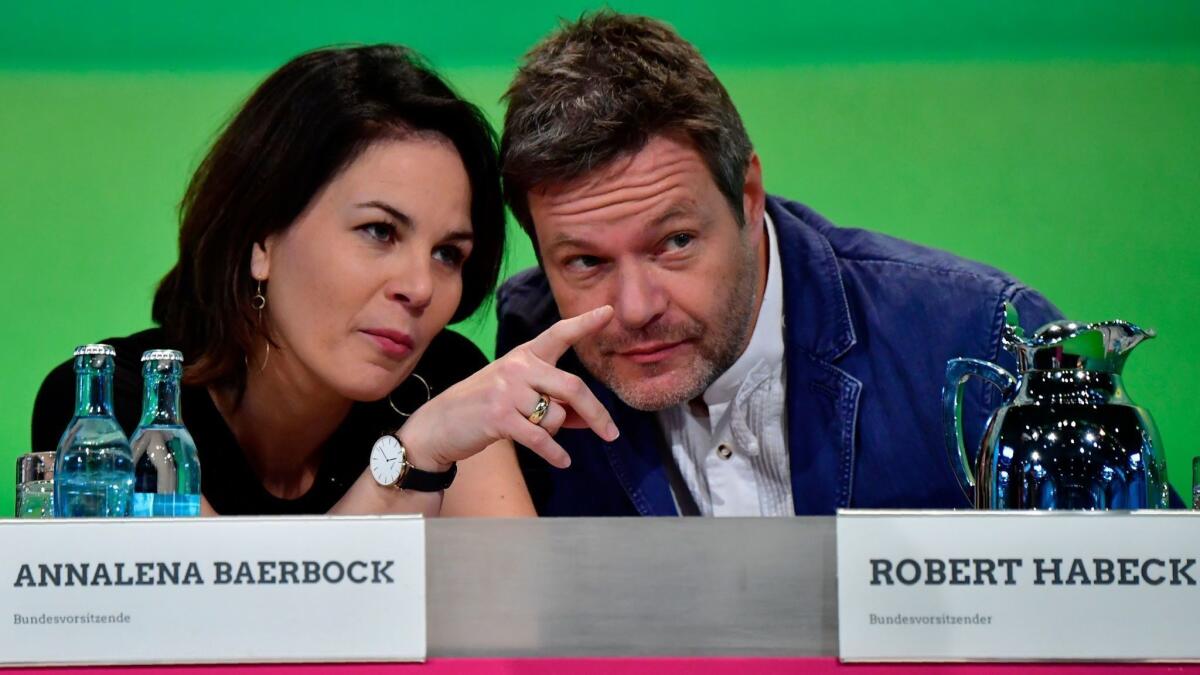
Oezcan Mutlu, a leader of the Greens in Berlin and former member of the German Parliament, said in an interview that the Greens were more than capable of leading the country. He said he was confident the party’s strong showing in May’s European elections and in voter surveys will not be as ephemeral as in the past. The party enjoyed a short-lived increase in support in the aftermath of the Fukushima nuclear reactor disaster in Japan in 2011 before falling back to splinter-party status in the 2013 election.
“The Greens have been fighting hard to protect the environment since the day we were created while the other parties have been ignoring the dangers of climate crisis,” said Mutlu. “The same is true for civil rights, fighting against right-wing extremists and for more renewable energy. People see the Greens as the party with clear answers to all that.”
The Greens trace their roots to the peace and environmental movements of the 1970s and entered the West German parliament for the first time in 1983. They became the world’s most successful pro-environment party as junior coalition partners in the German government from 1998 to 2005 with the Social Democrats.
They also have a history of self-inflicted wounds that have cost them support. They once called for a fuel tax increase that would have more than doubled the price of gas at the pump, costing them support just before the 1998 elections. They also called for higher taxes before the 2013 and 2017 elections, as well as the introduction of a much-mocked national “Veggie Day” to fight climate change. Those came back to bite them at the polls as well.
A leader of the far-right Alternative for Germany party, Beatrix von Storch, said that the Greens are the favorites of the German news media and tend to get positive coverage, whereas her party is at the other end of the spectrum and, in her view, is treated poorly or ignored by the media — claims that are difficult to quantify.
While junior coalition partners in the late 1990s and early 2000s, the Greens played a key role in laws that led to the gradual shutting down of the nation’s last 17 nuclear power plants by 2020 and the spread of renewable energy, which now supplies nearly 40% of Germany’s power. Even as an opposition party since 2005, it has been a force behind legislation allowing same-sex marriages and strong federal support for the millions of refugees and migrants who have arrived in Germany in recent years. The Greens also had a role in Germany’s recent decision to close its 84 coal-burning power plants by 2038.
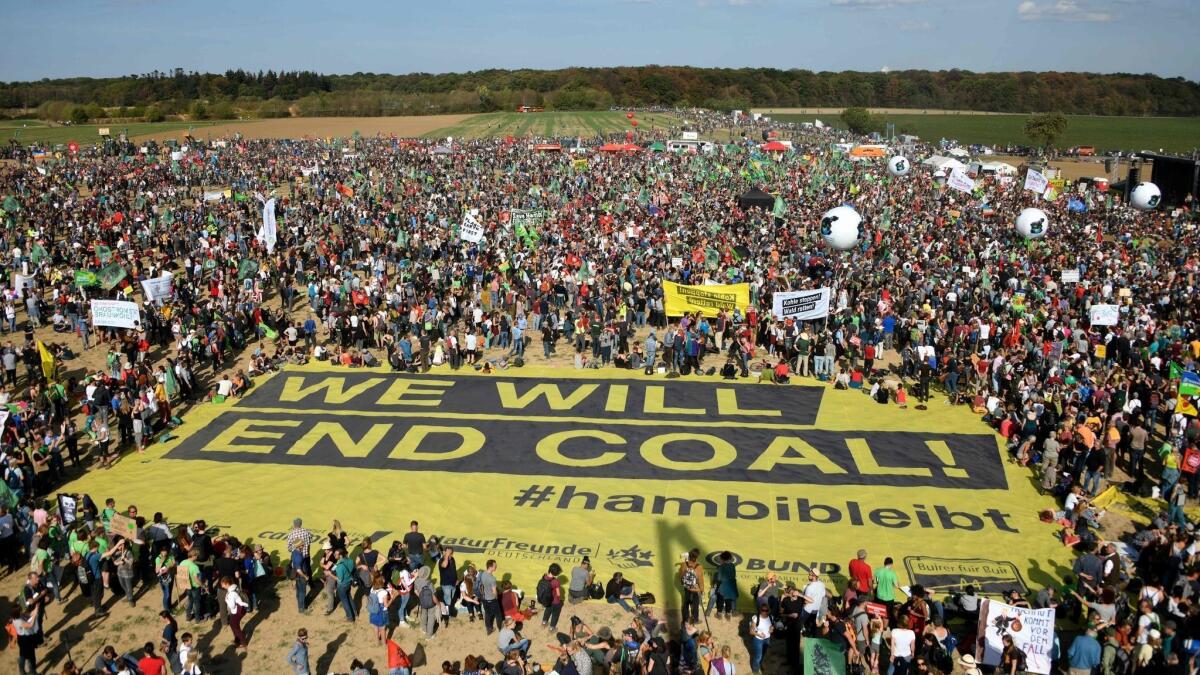
Their signature issue is fighting climate change. While the other parties in Germany have been inconsistent on the issue, expressing fears that a faster push toward the 100% renewable target or shutting down the coal-burning generators immediately could cause too much disruption and cost too many jobs, the Greens party has argued that time is running out and quick action is needed.
Demonstrations involving tens of thousands of students skipping school on Fridays to demand more action against climate change have bolstered the Greens’ message.
Just days before the European elections, a popular YouTuber named Rezo released a withering attack (link in German) against the Christian Democrats, Social Democrats and Alternative for Germany parties, blasting them for inaction against climate change and policies that, he said, have led to a growing gap between rich and poor in Germany. The video by the 29-year-old, whose full identity remains unknown, has been watched more than 14 million times and analysts believe it contributed to the steep erosion in support for both the conservatives and Social Democrats.
The Greens won one-third of the vote of those younger than 30 in the European elections in Germany, while the conservatives and Social Democrats together won less than a quarter of the vote, according to exit polls by ARD television.
“I think we’re seeing the end of the era for ‘big-tent parties’ in Germany,” said Thomas Jaeger, a political scientist at Cologne University, predicting that three or more parties will be jousting to rule future governments instead of only the two that long dominated. “The Greens are having such a moment right now because climate is their campaign cause and after a drought in Germany last summer and unusually hot weather, people are listening. But I’m not sure whether this one issue lifting the Greens will still be the most important topic months or years down the road.”
Julius van de Laar, a campaign consultant in Berlin, believes the Greens’ rise has changed the political map in Germany.
“For the first time in decades, German politics is suddenly volatile,” said Van de Laar. “Elections are about choices and the Greens are best-positioned right now to argue that they are the agent of change and that they are a powerful alternative to the status quo.”
ALSO:
On Germany’s autobahns, ‘Geschwindigkeitsbeschraenkung’ is a four-letter word to many
Environmentalists and police battle in a 12,000-year-old German forest in fight over coal mining
Germany’s long-awaited Berlin airport falls short of expectations — such as opening
Kirschbaum is a special correspondent.
More to Read
Start your day right
Sign up for Essential California for news, features and recommendations from the L.A. Times and beyond in your inbox six days a week.
You may occasionally receive promotional content from the Los Angeles Times.

